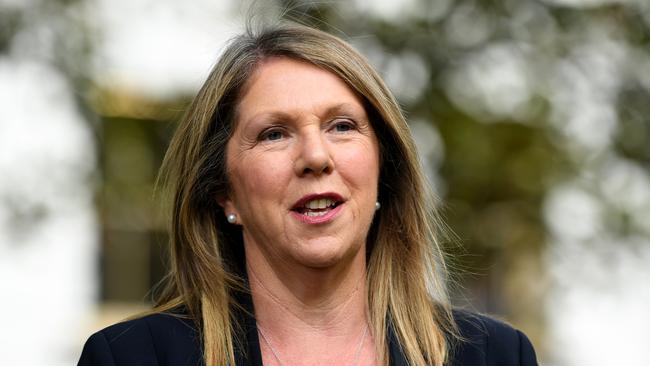Labor’s health hit on 65,000 families
Up to 65,000 families are most likely to be targeted under Labor’s plans to scrap private health rebates for so-called ‘junk’ policies.

Up to 65,000 families in regional areas are the most likely to be targeted under Labor’s plans to scrap private health insurance rebates for so-called “junk” policies.
In figures released to The Australian last night, Labor’s health spokeswoman, Catherine King, said Labor’s plans would affect 65,000 families, with a saving to the budget of $80 million.
Health Minister Greg Hunt accused Labor of planning to force millions of Australians out of private health insurance, and of presiding over a policy that was now in chaos.
“It’s reprehensible that the people mostly likely to be hit by Labor’s private health insurance policy are elderly people in regional communities,” Mr Hunt said. “This is complete policy chaos — Labor can’t be trusted.”
The term “junk” policy was first coined by consumer group Choice and is not used by the industry or the Health Department.
Labor clarified that it meant “valueless” policies that related to public hospital treatment only.
However, the industry warned that most of these policies were older policies held by elderly people in rural areas who lacked access to private health facilities.
Separate Health Department modelling on the new private health insurance system — which puts policies into four new tiers of basic, bronze, silver and gold, and is to be introduced on April 1 — put 2.9 million people in basic cover, 2.4 million in bronze, 1.1 million in silver and 4.8 million in gold cover.
Labor says its policy was designed to target people who bought cheap, valueless products to avoid paying the Medicare surcharge.
Despite initially claiming it could not calculate its policy based on the new system, Ms King’s office later revealed that the policy had been reviewed by the Parliamentary Budget Office.
The private health insurance industry has been calling for Labor to define what it meant by “junk policies” since it first announced the policy three years ago.
Last night, Rachel David, the chief executive of Private Healthcare Australia, welcomed the clarification but warned that the targeting of public hospital-only policies could inadvertently hit the elderly. “We need to be careful that older people in regional Australia would not be adversely affected by this policy,” she said.
A spokesman for Ms King last night said Labor regarded junk policies as a “sub-set” of the basic policies but could not say how many policies this related to under the new system.
After challenging the department’s numbers, Ms King’s office revealed that its policy would affect 65,000 families.
More than half of all Australians, an estimated 13.5 million people, hold private health insurance policies. However, many people were unaware of what level of cover they had under the complex array of exclusions.
Ms King’s spokesman said that under Labor’s plan, insurers would still be able to offer the cheaper products and consumers would be able to buy them, but taxpayers wouldn’t subsidise them.
“This will affect a tiny number of people,’’ he said. “In 2016, the Parliamentary Budget Office and Department of Health advised there were only 65,000 public hospital-only policies. That number may come down even further under the new system.
“This is a measure we announced three years ago — it’s nothing new. And we’re supported on it by consumer groups such as Choice. It’s simply about ensuring that taxpayers aren’t paying for products that deliver no health benefits.”



